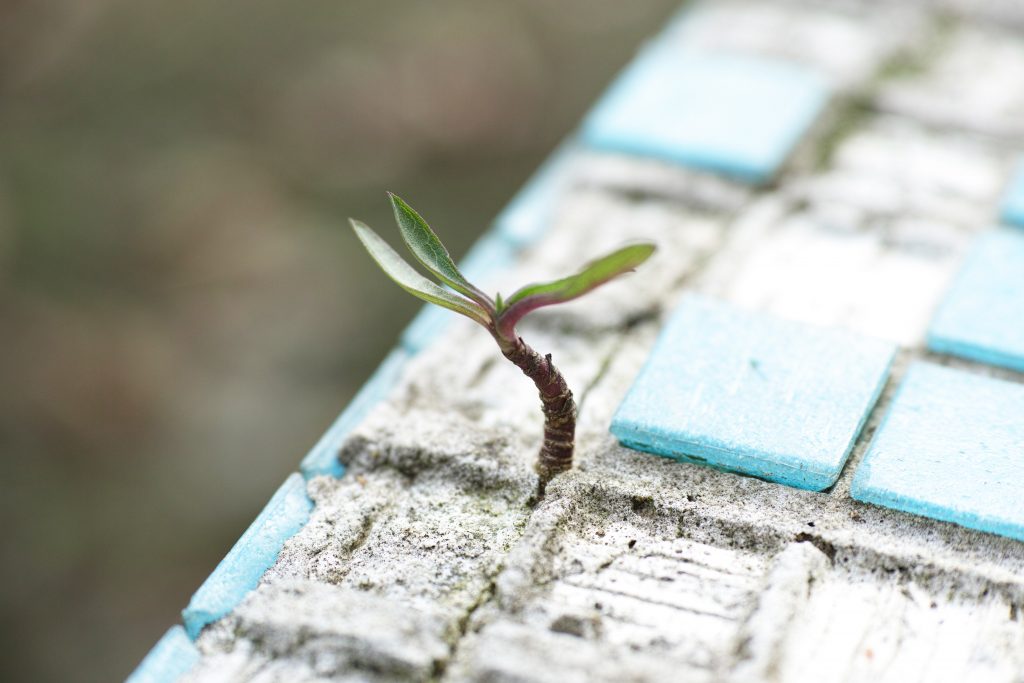Depression is often associated with or linked to low faith in Muslim communities. It is this misconception that pushes people further into their own shell and keeps them from reaching out for help.
However, trough levels of IgG were measured in this population (n = 44; five 12 week study parts). CHOICE was a randomized, double-blind, placebo-controlled phase II study to determine the safety and efficacy of adding daclizumab in patients with active disease despite treatment with IFN-β ( Wynn et al. However, the indicator cannot measure the extent to which the full range of pricing policies has been implemented سعر حبوب ليفيترا ١٠مج . Since concomitant administration of fosinopril with potassium supplements, potassium containing salt substitutes or potassium sparing diuretics may lead to increases in serum potassium, they should be used with caution.
Depression is a very complex illness, it’s often hard for the patient themselves to understand what is happening and why? They could be doing things by the book and still have an incredibly hard time. So when someone tells them that the reason they’re suffering so much is because they have a low emaan, their faith isn’t strong enough because they’re not trying hard, they sin too much and don’t care etc. in short, they’re being punished because they’re not a good Muslim, it doesn’t help them, at all. If anything it worsens their condition.
Much like the flu, depression isn’t exclusive to a certain kind of people, it doesn’t discriminate and it can affect anyone regardless of their faith or lack of it. There are Muslims who fulfill their obligations, such as their daily prayers, they recite The Qur’an frequently and some who even study the Qur’an and yet have experienced depression. Many Muslim women suffer from postpartum depression, or menopausal depression; women of strong faith, women who seek knowledge, women who try their best to please their Creator every day. So stating that one’s lack of religiousness is the reason for their depression or any mental illness is not true.
People who practice their faith can fall into depression, but unfortunately depression is a cruel illness and if it’s not treated, it can lead to low emaan, because depression can make the simplest of tasks incredibly burdensome on the patient, sometimes brushing your teeth or even getting out of bed can seem as hard as climbing a mountain without any equipment or experience. You lose interest in things you once loved, nothing seems to bring any joy anymore, so unfortunately, even praying and reciting Qur’an can become difficult and at times people become so helpless, they end up abandoning it completely.
You never thought things would get this bad, you don’t want to neglect your duties but it can be hard, extremely hard and lonely, you may fear that no one will understand and that you will be told to pray more, read more Quran, repent more, socialize more, exercise more, more more more as if more is guaranteed to fix this. But it’s already difficult to finish what you’ve already got on your plate. The mountain’s already too big, the thought of adding to it is more terrifying than anything and in the end things are just left as they are, nothing changes.
Can I maintain/improve my faith while struggling with depression?
Absolutely, we must not put our potential successful life in the hereafter at risk. Remind yourself of the importance of faith and fulfilling religious obligations such as Prayer, for example. There never an excuse for abandoning prayer, no matter how ill you are, one is not excused from praying even if you are bedridden! So depression is no exception.
How to maintain prayers?
Prayer is crucial to our faith; we must acknowledge and understand its importance in our lives.
The importance of prayer is demonstrated in many of the Prophet’s statements. For example, the Prophet (peace be upon him) said,
“The first matter that the slave will be brought to account for on the Day of Judgment is the prayer….” [Recorded by al-Tabarani. According to al-Albani, it is sahih. Al-Albani, Sahih al-Jami, vol.1, p. 503.
“Its aim is to generate within the subliminal self of man such spiritual power, light of faith and awareness of God as can enable him to strive successfully against all kinds of evils and temptations and remain steadfast at times of trial and adversity and protect himself against the weakness of the flesh and the mischief of immoderate appetites.” [Nadwi, p. 24]
People who suffer from depression are less likely to do a task the more they think about it, so one may think about the steps to take before salah, all the rakahs to pray for Fardh and sunnah prayers and this can be exhausting for them and they end up delaying or leaving it. Instead, try your best to not think about all the steps but only what you must and can do at the moment. Tell yourself that you only have one goal “I only have one goal today, to pray, that is all I need to accomplish.”
On especially tough days, be kinder to yourself, only focus on what you MUST do and put all your energy and efforts into that. So if you’re finding it very hard to pray, if it seems burdensome then muster up the strength to pray just the Fardh [obligatory] prayers, just praying the obligatory raka’s for Dhuhr, Asr, Maghrib & Eshaa is far better than not praying any.
How to maintain your relationship with The Quran?
Recite some Quran daily, one page, if that seems too much at that moment, then half a page maybe 5 or even 3 ayahs. But read it, if you only read 5 ayahs that day, it’s good. Try your best! Download a Quran app that also provides translation and/or tafsir on your phone, this way it’s always within your reach and only a few taps away.
Dhikr:
Every time you’re alone & feeling down, make some dhikr, if done consistently, it can and will have an incredible impact on your life In shaa Allah. According to scholars, making dhikr can give one the strength to do what they may not have been able to do before [dhikr]. Following are some simple yet powerful dhikr to make.
ISTIGHFAAR
“Seek forgiveness of your Lord and repent to Him, [and] He will let you enjoy a good provision for a specified term and give every doer of favor his favor.” (Quran 11:3)
And Allah would not punish them while they seek forgiveness. (Quran 8:33)
Keep seeking forgiveness, for Allah loves those who seek forgiveness.
Subhaan-Allaahi Wa Bihamdihi (سبحان الله و بحمده ), Subhaan-Allaahil-Azhim (سبحان الله العظيم)
Abu Hurairah (May Allah be pleased with him) reported: The Messenger of Allah (PBUH) said, “There are two statements that are light for the tongue to remember, heavy in the Scales and are dear to the Merciful: `Subhan-Allahi wa bihamdihi, Subhan-Allahil-Azhim [Glory be to Allah and His is the praise, (and) Allah, the Greatest is free from imperfection)’.”
[Al-Bukhari and Muslim].
Abu Dharr (May Allah be pleased with him) reported: The Messenger of Allah (PBUH) said to me, “Shall I tell you the expression that is most loved by Allah?” It is `Subhan-Allahi wa bihamdihi’ (Allah is free from imperfection and His is the praise)’.”
[Muslim].
Imagine all the rewards you can reap simply by sitting where you are and reciting the above dhikr!
Ya Hayyu Ya Qayyum, bi-Rahmatika astagheeth
Anas ibn Malik (Allah be pleased with him) relates that if any distress befell the Prophet (Allah bless him and give him peace), he would say: Ya Hayyu Ya Qayyum, bi-Rahmatika astagheeth (‘O Living, O Sustaining, in Your Mercy I seek relief!’). [Related by Tirmidhi, Sunan (3600)]
Do whatever good you can.
Do good to yourself and to others. If your one good deed today can only be smiling at someone, then smile, if you can help someone else, help them, if you can give sadaqah today, give it. You don’t have to take any grand or heroic actions. Just do what you can with the right intentions and you will be rewarded in shaa Allah.
Make note of the things you are grateful for.
Thinking about and making a list of things you are grateful for can help you. Once you’ve put it on paper and read it, it stays in the back of your mind and the more things you add the more frequently you remember. Dig deep if you have to and search for at least one thing you’re truly grateful for. I once read an account of a person who suffered from depression who said that there was a time when the only reason they could get out of bed each day was because of the warm lunch served at their office. It wasn’t great but a small thing to look forward to nonetheless. Gratitude can actually have lasting positive effects on your brain and improve your mental health!
Don’t let Shaytaan fool you!
Whenever you find yourself going down a spiral of negative thoughts and wondering whether any of your efforts are even worth it, remember this:
As narrated by Tirmidhi and Ibn Maajah: – The Prophet (sallallaahu ‘alayhi wa sallam) said :
‘The greater reward is with the greater trial or the greater the trial or difficulty of test or hardship is then the greater the reward. And when Allah loves a person He will test them. So he who will be pleased and then He will be pleased. He who is displeased, then He will be displeased.’
Take your depression as a test and not as a punishment. Allah swt is The Most Merciful, The All-Knowing, The All-Seeing; He knows and understands your pain and He sees your efforts, unlike the people around you, He knows that you aren’t being lazy or careless, He knows of the pain you’re in, so ask Him for help, ask Him like a stubborn child that won’t let go until they’re answered. He will listen and He will answer your duaas.
Lastly, if you or someone you know is struggling with depression, please seek professional help. Allow yourself a chance to experience a proper recovery with the help of professionals. Please do not let it go untreated. We care about you and if you have any further questions or concerns, ACC is always here for you.



